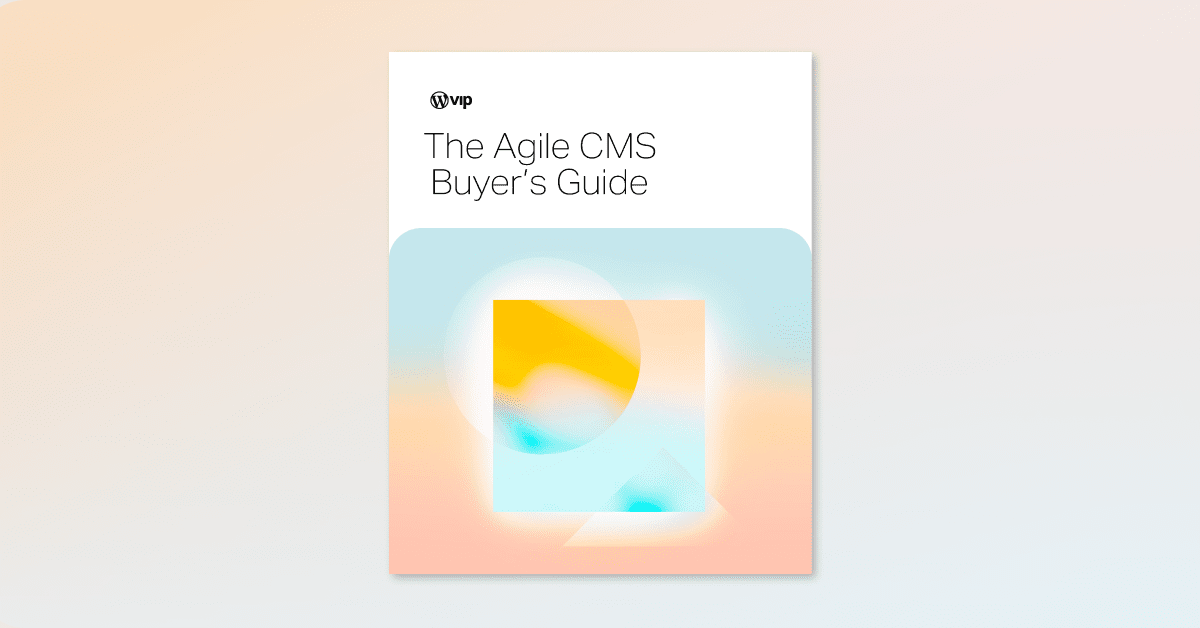What is Enterprise Content Management?
Enterprise content management is the all-encompassing strategy and process of creating, managing, and delivering content for audiences across channels.
A strong enterprise content management strategy and process offers a single source of truth, which is critical for:
- Improving content collaboration, creation, and productivity
- Producing and delivering high-quality, reliable, accessible content
- Minimizing data and security breach risk
- Complying with regulatory requirements
- Increasing leads and conversions through content
- Gathering data and performance metrics
Enterprise content management strategies are typically executed through a business or organization’s website platform, called a content management system (CMS), or a combination of other content services.
What is a content management system?
A content management system, commonly known as a CMS, is a web or server-based platform for executing content management strategies and processes. Without a good CMS, content management can easily become disorganized and take unnecessary time and resources.

Looking for a new
enterprise CMS?
Check out our Agile CMS Buyer’s Guide.
Features and benefits of an enterprise content management system
An enterprise CMS is essential to producing business-critical content. Some CMSes, like WordPress VIP, specialize in enterprise content management and provide additional features and benefits businesses value, such as handling large content libraries or granting different access permissions based on user type.
User-friendly content management
The most important feature of an enterprise CMS is a user-friendly platform that democratizes publishing across the organization, allowing anyone to easily write, create, edit, and publish content. While not everyone might actually create content, it shouldn’t require a technical representative to do so.
An easy-to-use platform improves workflows by streamlining the content management process, which reduces the overall cost of producing high-value content.
Enterprise content management systems should also offer omnichannel marketing and content distribution features to push your content to every channel that matters for your business, quickly and easily.
Customizable setup
It’s crucial to have the ability to customize your content in the best format for your business. Whether it’s choosing between a single stack, headless, or hybrid setup, or a single site versus multisite, your enterprise CMS should adapt to fit your needs—even if they change over time.
Additionally, it should offer a variety of plugins, extensions, and APIs that provide the features you need on your enterprise website(s). A primary benefit of using an open source enterprise CMS is the flexibility of an open architecture. Instead of relying on a site’s owned code, you can easily deploy a fully-custom setup using innovative and flexible tools that integrate seamlessly.
Ecommerce solution
Not all enterprise content management systems can accommodate ecommerce, but you can boost your growth with an integrated CMS and ecommerce platform. Your enterprise ecommerce solution should be able to:
- Handle worldwide sales and/or subscriptions, at scale
- Push promotions and take discount codes
- Offer multiple secure payment options
- Provide catalog management
When your ecommerce is tied to your CMS, your team is able to easily engage with customers, measure sales metrics, and get new offerings to market much faster.
Content analytics and optimization
Many enterprise CMSes offer built-in optimization for mobile and desktop viewers, and SEO-boosting tools that can help increase engagement and drive revenue.
You should also be able to find, track, and analyze important content performance and engagement metrics through your CMS. While most enterprise CMSes are compatible with tools like Google Analytics, some offer built-in analytics that will offer a more user-friendly real-time look at how your content is performing. For example, WordPress VIP provides built-in content analytics and optimization features through Parse.ly.
Security and support
The security and support features provided by an enterprise CMS are critical to providing a fast and reliable consumer experience. Your CMS should provide compliance and regulatory features for collecting data, and audit any changes made to the site’s code and content.
You should be able to see, at any given moment, how your site is performing with real-time site health monitoring. As an enterprise, you should also be using a content distribution network (CDN) with global servers to protect your site from attacks and keep your site load times fast.
Lastly, you’ll most likely require upgrades and updates to your site, so versioning capabilities and a helpful support team are crucial to a productive and positive enterprise CMS experience.
How to choose an enterprise CMS
Finding the best enterprise CMS for your business is an important decision, so assemble your decision-making team with all of the appropriate stakeholders. Be sure to include representatives from the C-suite, development and IT team(s), marketing and content creators, etc.
Once you have your team, you can make a wish list with all of the wants and needs from each department. As you weigh your options, review each platform’s pros and cons, including features, benefits, support, and pricing. Don’t settle for less than your business needs to continue growing your content management strategy.
Still have questions? Review The Agile CMS Buyer’s Guide for more in-depth information on choosing the right CMS for your enterprise.